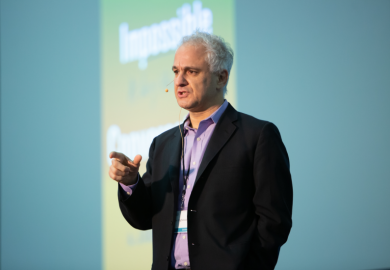Editors: Ram Neta and Duncan Pritchard
Edition: First
Publisher: Routledge
Pages: 583
Price: £75.00 and £22.99
ISBN: 9780415448383 and 8390
The market for anthologies in epistemology aimed at upper-level undergraduate students is crowded. Ram Neta and Duncan Pritchard's text is, however, very welcome because of its fresh perspective on the area. Until recently, anthologies have been dominated by discussions about scepticism, the structure of knowledge and the debate over externalist and internalist accounts of knowledge and justification. The anthology Epistemology (2000), edited by Ernest Sosa and Jaegwon Kim, is typical in this regard.
Neta and Pritchard cover this material but do not allow it to dominate. Thus, contributions to the issue of scepticism are included by way of excerpts from Descartes' Meditations, G.E. Moore's paper on certainty and David Lewis' seminal paper "Elusive Knowledge". The debate over foundationalism and coherentism is also addressed with statements by Laurence BonJour (as a coherentist first and then as a defender of foundationalism), by Peter Klein in defence of infinitism and by Sosa in his well-known piece, The Raft and the Pyramid. The debate on internalism and externalism is not treated as a stand-alone section, but influential papers by Alvin Goldman and William Alston on this topic are included by being subsumed under two more general headings: one concerning the nature of justification and the other about the nature of the epistemic "ought".
The remainder of the anthology is dedicated to other topics, some of which include essential but well-trodden territory, such as a section on the analysis of the concept of knowledge and on responses to the Gettier problem, and a section on the sources of knowledge. Issues that have come to the fore in the past few years are also covered. Their selection marks out this anthology from others that are available. Typical in this regard are the papers by Jonathan Kvanvig and Linda Zagzebski on the value of knowledge, by David Kaplan on decision theory and by Adam Elga on the Sleeping Beauty problem.
There are a few titles on the market that attempt to cover new debates, such as Contemporary Debates in Epistemology (2005), edited by Matthias Steup and Ernest Sosa, but I have found them to be often too technical for undergraduate students.
This anthology will work extremely well as the sole essential textbook for any upper-level undergraduate course in epistemology based on primary sources. Both the choice of papers, which include a few pieces from literary authors such as Jorge Luis Borges and Luigi Pirandello, and their groupings in sections are excellent, although I would have added at least one piece on social epistemology.
Introductions, study questions and suggestions for further readings supplied for each section offer guidance to readers who are new to the subject. Students and lecturers will find this book very useful indeed.
Who is it for? Upper-level undergraduates, taught postgraduates and general readers interested in the main issues in contemporary analytic epistemology.
Presentation: A comprehensive collection of 44 papers, prefaced by introductions, study questions and suggestions for further reading.
Would you recommend it? Yes. This is one of the best anthologies on the market.
Register to continue
Why register?
- Registration is free and only takes a moment
- Once registered, you can read 3 articles a month
- Sign up for our newsletter
Subscribe
Or subscribe for unlimited access to:
- Unlimited access to news, views, insights & reviews
- Digital editions
- Digital access to THE’s university and college rankings analysis
Already registered or a current subscriber? Login



